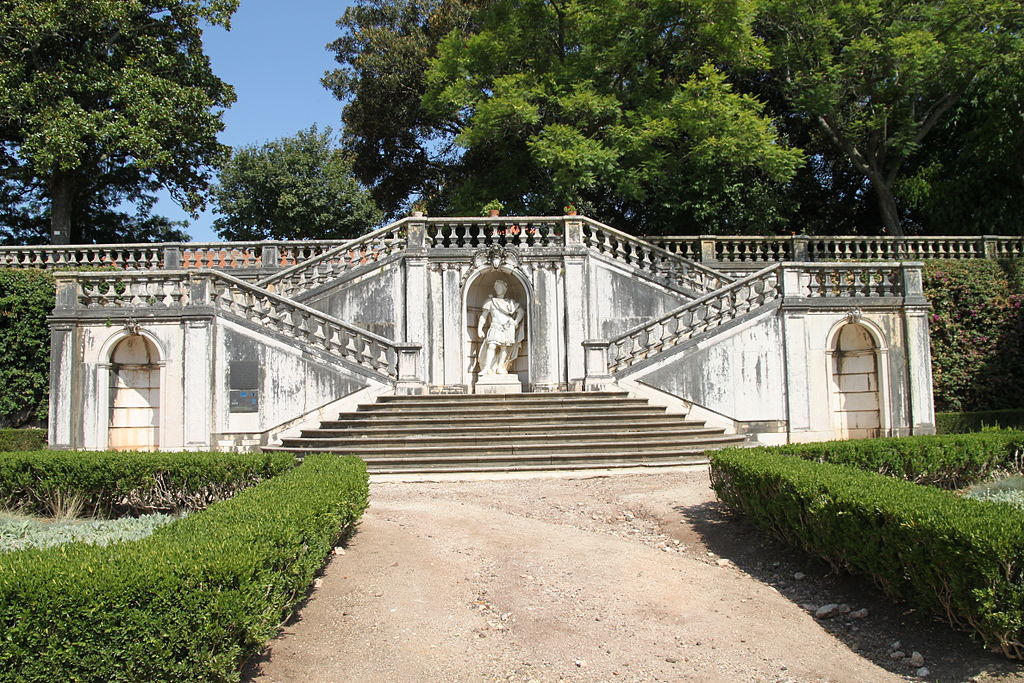The garden was originally located on the grounds of Ajuda Palace, but it was moved to its current location in 1807. The move was necessary because of the Napoleonic Wars, which had made it difficult to maintain the garden at Ajuda Palace.
The garden suffered a number of setbacks in the 19th century. In 1808, during the Peninsular War, the French invaded Portugal and took many of the plants from the garden to Paris. In 1834, a fire destroyed a large part of the garden. And in 1854, a tornado damaged many of the trees.
Despite these setbacks, the garden continued to grow and evolve. In the 20th century, the garden was expanded and new collections were added. The garden also became a popular tourist destination.
With its rich history, stunning landscapes, and diverse botanical specimens, the Ajuda Botanical Garden offers visitors a unique and immersive experience in the realm of nature. The garden's layout is a harmonious blend of formal and informal design elements. As visitors explore the various sections, they will encounter winding pathways, lush lawns, serene ponds, and vibrant flowerbeds. The garden is meticulously organized into different zones, each representing distinct plant species and geographical regions.
Ajuda Botanical Garden is home to a wide variety of plants from all over the world. The garden's collections include plants from Africa, Asia, America, and Europe. The garden also has a number of greenhouses, which house plants from tropical and subtropical regions.
One of the highlights of the Ajuda Botanical Garden is its impressive collection of rare and endangered plants. From towering palm trees to delicate orchids, the garden boasts an extensive variety of flora. Visitors can marvel at the colorful blooms, enjoy the fragrance of aromatic herbs, and admire the intricate patterns of foliage. The garden is also home to a diverse range of tree species, including ancient specimens that have stood the test of time. Some of the most notable plants in the garden include:
- Dragon's blood tree (Dracaena cinnabari)
- Baobab tree (Adansonia digitata)
- Jacaranda tree (Jacaranda mimosifolia)
- Royal poinciana (Delonix regia)
- Flamboyant tree (Peltophorum pterocarpum)
The Ajuda Botanical Garden is not only a place of beauty but also serves as an educational hub for botanical studies. The garden actively engages in research, conservation, and propagation of endangered plant species. It collaborates with international botanical institutions and participates in various conservation programs to preserve biodiversity and promote sustainable practices.
Lisbon.vip Recommends
Beyond its botanical wonders, the Ajuda Botanical Garden holds significant historical and cultural value. Its establishment in connection with the Ajuda National Palace reflects the intersection of nature, art, and architecture. The garden's serene ambiance and picturesque landscapes make it a favored destination for locals and tourists alike, providing a tranquil escape from the bustling city.
The Ajuda Botanical Garden also hosts cultural events, exhibitions, and concerts, adding an artistic touch to its natural beauty. From outdoor art installations to live performances, the garden becomes a vibrant venue that celebrates the harmonious blend of nature and culture.
Ajuda Botanical Garden is open to the public from 9:00am to 6:00pm, Tuesday through Sunday. Admission is €3 for adults and €1.50 for children.
The garden is located at Calçada da Ajuda, 1349-001 Lisboa, Portugal. It is easily accessible by tram (tram 18) or bus (bus 760).
The Ajuda Botanical Garden stands as a testament to Lisbon's commitment to preserving its natural heritage and providing a space for botanical exploration and appreciation. Its awe-inspiring landscapes, diverse plant collections, and educational initiatives make it a must-visit destination for nature enthusiasts, researchers, and anyone seeking solace in the embrace of nature's beauty.
Map View



